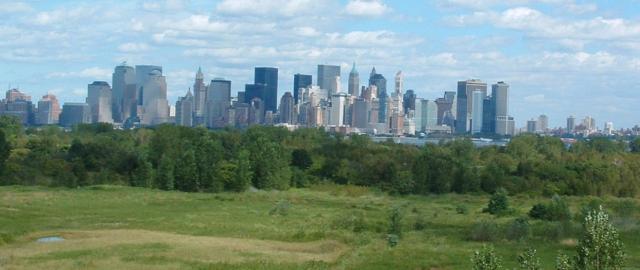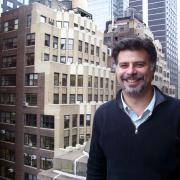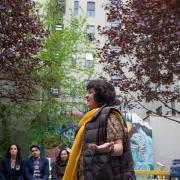Spring 2017 Lecture Series

The Hixon Center for Urban Ecology’s annual lecture series is free and open to the public. The lectures take place at noon in Kroon G01 and lunch will be provided.
Speaker Information
For over thirty-five years Dr. Gallagher has explored the connection between people and landscape through both management and academic research. His current research, as part of the Urban Forestry Laboratory, focuses on the sublethal impact of soil metal contamination at both the species and assemblage level. Over the past several years the lab has examined metal translocation pathways and its impact on species distribution, productivity, reproductive success and guild trajectories. Dr. Gallagher has published extensively in both scientific journals and venues of general interests on topics ranging from phytostabilization of contaminated soils to the ethics of ecosystem function monetization. He has presented hundreds of lectures at conferences and meetings both nationally and internationally. Topics have generally included current natural resource based environmental issues, demographic transition and most recently brownfield redevelopment. In 2001 he was invited by Princess Abdulla of Jordan to lecture on forest development in Amman, Jordan. Read more here: http://gallaghergreen.com/
Speaker Information
Dr. Franco Montalto, PE is a licensed civil/environmental engineer and hydrologist with 20 years of experience working in urban and urbanizing ecosystems as both a designer and researcher. His experience includes planning, design, implementation, and analysis of various natural area restoration and green infrastructure projects. As an Associate Professor in Drexel University’s Department of Civil, Architectural, and Environmental Engineering, he currently directs the Sustainable Water Resource Engineering Laboratory. He also heads up the Green Infrastructure Sector of the NOAA-funded Consortium for Climate Risk in the Urban Northeast (CCRUN), a five-year research initiative. Dr. Montalto is also the founder of eDesign Dynamics LLC, a consulting firm based In New York City that specializes in green infrastructure and ecological restoration. Previously, Dr. Montalto served as the Wetlands Engineer at the New Jersey Meadowlands Commission, where he was responsible for the engineering design of the 139-acre Mill Creek Marsh in Secaucus, NJ among other large urban wetland restoration projects. He has worked overseas in various capacities in Europe, Africa, the Caribbean, and Latin America and is the author of numerous publications in the water resources and environmental fields. He was also formerly a Fellow at the Earth Institute at Columbia University, a Fulbright Scholar, and an Adjunct Professor at the Cooper Union for the Advancement of Science and Art, where he received his first degree. His graduate degrees are from Cornell University.

Speaker Information
Paula Segal is the founding director of 596 Acres. She ran the project from 2011 to 2016. 596 Acres has facilitated the creation of 39 new and community growing spaces in NYC since 2011. It played a key role in the the preservation of dozens of others and is actively involved in current campaigns to transform vacant public land into community resources, to build long-promised public open spaces, to defend gardens owned by not for profit organizations from tax lien foreclosure and to preserve community spaces in the face of deed theft. To facilitate understanding of land ownership that can lead to action, 596 Acres built an online tool, livinglotsnyc.org which has been adapted and adopted for use by advocates in cities internationally (GroundedInPhilly.org, http://www.heritagemontreal.org/en/h-mtl-platform/ and http://www.land… Melbourne, Australia).
In 2017, Ms. Segal shifted into an advisory role with 596 Acres and joined the Community Development Project (CDP) of the Urban Justice Center as a Senior Staff Attorney in its Neighborhood Change practice. At CDP, she supports 596 Acres and other CDP partners who seek to vest control of neighborhood change in communities rooted in our neighborhoods. She is an Ashoka Fellow recognized for building the field of community land access advocacy and for her leadership in shifting the legal profession towards creating opportunities for everyone to be a change-maker.

Speaker Information
Dr. Warren’s research seeks to understand processes generating and maintaining biological diversity in a world that is becoming increasingly dominated by humans. Research in the lab spans the species, community and landscape levels and focuses on the impacts of urbanization on animals. Rapid urbanization is one of the greatest challenges facing conservation biology, with many cities growing in area faster than in population. In addition, the highly managed nature of a city landscape provides biologists with some unique opportunities to understand both the role of humans in altering patterns of biological diversity and the role of behavior in limiting animal distributions. A guiding principle for Dr. Warren’s research is that the typical indices of urbanization, such as human population density, describe only a portion of the habitat structure that is important for wildlife. Human behaviors, values, and resource consumption levels can influence the habitat and resource availability for birds and other organisms.
